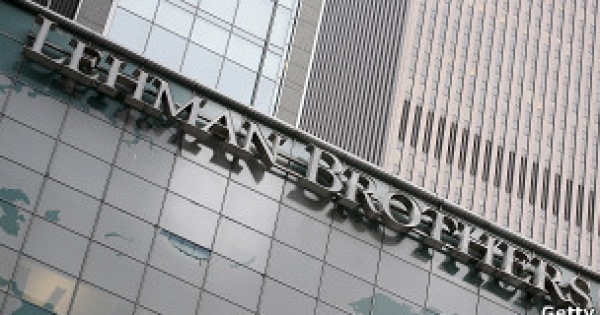
the U.S. economy is growing, Americans feel safe and optimistic. But economists warn: appearances can be deceiving.
Ten years ago that burst the housing bubble in the United States, causing a recession. The collapse of the stock market investors looked to vanish nearly seven billion dollars. Over the course of two years, almost nine million Americans lost their jobs. U.S. taxpayers paid the Bill. With the Dodd-Frank Act authorities put more stringent rules to the financial world.
Central banks around the world flooded the markets with money and reduced to zero interest rates. The idea was that banks provide cheap money to companies, to promote investment, and consumers, so consume more. The plan worked.
Not everything that shines is gold the United States economy grew in the last quarters in more than 4%, U.S. companies have achieved, quarter after quarter, new record profits, the labor market reported nearly full employment, and the prices of the Wall Street shares soared. In recent weeks, two U.S. companies have passed the top of valuation of a billion dollars: Apple and Amazon. The positive perception of consumers is the highest in the past ten years. The American President, Donald Trump, celebrated on Twitter results. Even the Federal Reserve of USA has expressed optimism about the economy.
Record of debt but there is a bitter reality. Loose monetary policy has done to increase, around the world, the debt of households, businesses and Governments. Debt has risen since the eve of the financial crisis by 74%. And this year there are fears a record amount of 247 billion dollars, so suggests a study by the McKinsey management consultancy.
In comparison, the economic output of US round the 19 billion dollars. Only in the first quarter of 2018, the debt grew by 11%, compared with the previous year, according to the Institute of international finance. “There is a relationship between the credit market overheating and a subsequent economic recession,” warns Itay Goldstein, Professor of finance at the University of Pennsylvania.
Corporate bonds of high risk policy of zero interest rates has further toxic effect: makes more attractive higher-risk bonds, also called “bonds or junk loans”. These have a high risk of default because the issuing companies have a negative balance. Globally, the amount of junk bonds issued in 2017 reached the $ 2 trillion, more than double than the average in 2007. “How much better gear economy there is more available to take risks”, says Goldstein.
But the enormous mountains of debt are dangerous when increasing defaults. And these are more likely when interest rates increase, as is the case at present. Most of the debt is cancelled by companies contracting new debts, to a new, higher interest rate. That increases their costs.
To make things worse: consumers will have to pay higher rates of interest on credit cards, auto and mortgage loans. Consumers react then reducing spending. Result: costs for businesses grow, and to decrease your sales. “This time, however, the banks will not be the problem, thanks to stricter regulation”, explains Susan Lund, co-author of the McKinsey study on the global debt accumulated by private enterprise, which is $ 66 billion.
Inflated share prices but also the stock market is characterized by the high level of debt risks. This, because the companies have bought, above all, its own shares with borrowed money. Repurchases of shares are currently at levels record and the 500 companies that are listed in the main index on Wall Street, the S & P 500, will invest $ 1 billion in its own shares this year.
Record on Wall Street prices are due to that companies simply increase demand for its own shares. As a result, earnings per share also increased, which makes them seem even more attractive. European companies will spend € 10 billion on share repurchase, this year alone.
At the end of a cycle?
In any case, the Economist Lakshman Achuthan, founder of the Economic Cycle Research Institute, which studies economic cycles, warns that “the slowdown of the US economy is approaching and is imminent”.
Some investors agree with Achuthan: billionaire Ray Dalio, founder of Bridgewater Associates, the world’s biggest high-risk fund, believes that the US economy is not yet a bubble, but that it is about to occur. Estimated that the risk of a recession before the next presidential election by 2020 is, with 70%, “relatively high”.
"El reclamo puede ser genuino, pero construido sobre una mentira", apuntó el presidente Javier Milei…
El gobernador de la provincia de Buenos Aires, Axel Kicillof, encabezó un acto en Ensenada…
El diputado nacional de La Libertad Avanza, José Luis Espert, expresó su confianza en la…
Tras la masiva reaparición de Cristina Fernández de Kirchner, el presidente Javier Milei apuntó contra…
El principal propósito de la nueva comisión es evaluar los recursos humanos en el Senado,…
En una medida que busca redefinir las condiciones de los seguros de automóviles en Argentina,…
Esta web usa cookies.